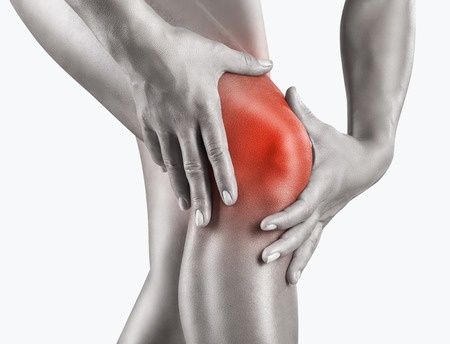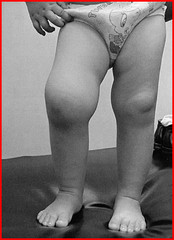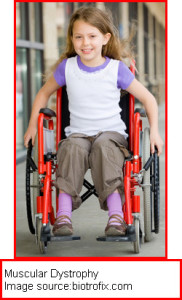Aching Legs and Feet
Injury is the most common cause of leg pain (aching legs). However, even a simple back pain can cause your legs to ache depending on the degree of pain. Usually, elders and diabetics and people with poor circulation are the ones who experience leg pain especially at night.
In the active world of today, though, there are a number of non-traumatic factors that can cause legs to ache. Chronic pain or persistent pain without trauma may be caused by problems in the bones, muscles, ligaments, joints tendons, nerves, nerves, blood vessels, and skin. The root cause of the pain is the inflammation of the tissue of the affected area.

Leg Pain (Aches) Causes
Causes of leg aches can be classified into the following:
- Traumatic
- Non-Traumatic
Traumatic
Injuries, falls, and twisted muscles and bones are the most common cause of leg ache. This is what we call traumatic cause. If you ignore the pain and try to continue using the injured area the pain will become worse and damage to the bones and surrounding tissues may increase.
Fractures
Fracture means broken or cracked. These normally happen to the bones. What happens is the muscles are being stretched until the bones get affected resulting in being broken or cracked. External physical force from sports or from an accident may also result in broken bones.
Shin splints
Jumping running, and dancing are the most common causes of shin splints. When an injury happens during these activities pain develops. It is the shin bone or tibia that is affected with this type of pain. This is known as tibial stress syndrome.
Sprain and strains
Injury of ligaments can also be called as sprain and it happens when the fibers of ligament gets stretched. Stretching of muscles and tendons can also cause strain. Whether it’s a sprain or a strain, both cause inflammation that results in leg ache.
Bleeding
When there’s a severe injury, bleeding also occurs. If there’s high pressure with the blood flow, pain occurs. The higher the pressure in the blood flow, the more painful the leg is.
Non-Traumatic Leg Pain
Aching legs brought by non-traumatic causes are quite difficult to diagnose. A patient may undergo series of medical tests before the doctor can identify the true cause of the pain. There are some causes that can be easily determined by just knowing which leg is aching. Since non-traumatic causes are difficult to diagnose, it helps to know some of them so you’ll be more aware. Here are some of them:
Low back pain
Low back pain caused by sciatica (inflammation of nervous ischiadicus). Pain can radiate from the cheeks down to the leg. The complexity of pain depends on the root of the nerve involved. That is why the pain is felt in the shin, thigh, or foot.
Leg pain in children
While the aching legs of children aren’t usually something serious, this type of pain must not be underestimated. Often this kind of leg pain is overlooked and considered to be “growing pains”. However, if it is due to joint infection that causes lower back pain, injury damaging plates of growth, or pain due to systemic illnesses it can become a serious concern.
Three of these are:
- Juvenile rheumatoid arthritis is not contagious but can be quite painful and may result in significant deformities if left untreated. Aches in joints and loss of motion are among the symptoms of this autoimmune disease.[5]

Juvenile Rheumatoid Arthritis
- Rheumatic fever is caused by a Streptoccus bacteria and is highly contagious though not as common as it once was. It can be treated with antibiotics and often follows a Strep Throat infection. [4]
- Henoch-Schonlein purpura [1]. Henoch-Schonlein purpura is a skin condition that is the result of an unexplained systemic inflammation of blood vessels. It usually happens in children and unless it persists for a long time it is benign. In some cases it may involve joint pain and it may progress to the kidneys. At this time it becomes a serious condition.

- Polio is caused by a highly contagious virus (Polio myelitus). The last reported case in the USA was in 1979 due to an intensive eradication and immunization program in the 1950’s-1960’s. Nonetheless, it can still be found in India, Pakistan, Nigeria and Afghanistan. [2]
- Muscular dystrophy is inherited and there are many kinds. All of which cause muscular weakness and atrophy and show as at least one of the symptoms, aching legs. [3]

- Diabetes – Because the blood glucose level is not regulated, this causes the nerves and blood vessels to deteriorate hence causing pain in the legs of the patient.
Symptoms of Aching Legs
Depending on the severity of pain, symptoms of aching legs have various medical presentations. The pain could be explained in varying ways, e.g. as sore, sharp, heavy, dull, aching legs, or burning. Pain can be constant or occasional. There are pains that can be alleviated by rest or activity. Each cause may provide varying symptoms. Be aware that some pains are acute and others are chronic.
Remedies and Treatment for Aching Legs
Legs are very important to all people. We use them 24×7 whether in standing, sitting, and even lying positions. Aching legs or interfere with all of our daily activities. For this reason, caring for them should be part of your daily health regimen. If not, eventually you may experience any of the traumatic or non-traumatic causes discussed in this article.
Physical therapy can often relieve aching legs or feet. Massage is another method of minimizing or relieving pain.
Herbal remedies can be helpful for soothing aching legs by reducing stress and inducing relaxation. You can try ‘fenugreek’ powder, along with your normal meal. Treat it as your supplement. Take just 2 spoonfuls of this. Bathing in rosemary is also a good herbal treatment.
Maintaining normal hydration is also one of the easiest and effective. In order to prevent blood clots, you might take a steam bath or periodically move your legs to regulate blood circulation.
Finally, elevating your legs after a day’s work is a good habit to develop. This restores blood circulation making the vessels restore normal function.




I was in a car accident just over 2 years ago and
had the back of my legs injured . the right one was cut in the calf. I have had pyhsio & have been taking accupunter for over a year but i am still having aching in my legs. It is really bad a night.
My doctor has given me 50 mg Pregabalin (Lyrica)
it helps for a while to relax me at night but doesn’t work all night.
What natural thing can I take?
I have been suffering with foot, ankle,and now leg pain for several months now.
To the point of having trouble walking on my left foot.and its gets worse after sitting
for a period of time or driving and then getting up is very painful with stiffness.
I was diagnose with Lyme disease 8 months ago, My doctor said it appears that
i have had it a while. But after the 14 day course of doxycycline i felt better then
i have in several years.But now i am having problems with my legs and feet.
Is it possible that i am developing arthritis from the Lyme Disease??I am a 46 year old male and never dream of having this and it is very rare in my area. So i am letting
people know if your having these problems it would be a good idea to get checked out
espeically if your docotor is going to do blood work anyway.
I have got relatives who suffer from leg pain. most of them are over 35 some younger then that as well but mostly over 35, they never had any injuries or anything its just he muscle pain, there is no good doctors back home. I was wondering if anyone can advice on what the treatments are?
Many thanks
I’m 50. my legs have been hurting a lot more lately,day or night. i have got no health problems.im not overweight.i exercise in moderation.i cannot sleep unless the legs are massaged. i am not on any medication and i dont take any supplements.please advise
Try iron supplements. And rub your legs with a healthy dose of icy hot pain cream right before bed.
Is it possible for bunions and the crossing toes to cause pain in your knee joints and cause aching legs?
ok…so my legs have ached since I was maybe 7yrs old and they do still now? It will go from one leg, and then die off a bit and then the next minute it will be in the other leg? any ideas?
Aching legs…i have been having these severe aches in both my legs to the point that I cant even sleep at night anymore…during the day its still there but not as strong as during night time….what can be the cause of this…..as I also suffer from Rhumatoid Athiritis in my hands affecting the first joint on most fingers..which in itself is extremely painful at times..could this be related with the aching legs in any way. Never had any problems with my legs before I am nearly 66, used to be a long distance runner and still lead a very active lifestyle, and the joints in my fingers only started affecting me about a year go